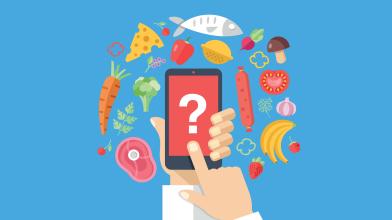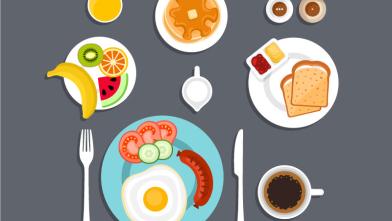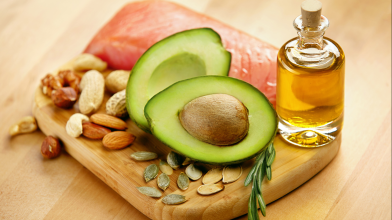You know you shouldn’t be eating that kind of stuff, right?
If you’d just eat better, you wouldn’t have to take so many medications.
I know someone who cut out all carbs and cured their diabetes; have you tried that?
Do any of these comments sound familiar? Maybe someone else has said them to you, maybe you’ve said them to someone, or maybe you’ve thought them about yourself. Either way, comments like this, even if they have good intentions, often come off as judgmental and shaming. This type of “advice” can cause confusion, anxiety, frustration, and an unhealthy relationship with food.
Our Relationship with Food
Food is important when it comes to keeping blood sugar in range, but managing diabetes is not just about glycemic control—we also need to juggle lifestyles, health goals, and mental health.
There are so many factors that influence our food choices, and you cannot see those factors by just glancing at a plate. Food is an important part of our lives, and it can have so many meanings to different people. It can mean health, love, sense of community, or pleasure, but for others, especially people with diabetes, it might cause feelings of anxiety and fear.
Changing the way you eat is a major lifestyle change, and major lifestyle changes always take time.
While you are on this journey, unsolicited advice from strangers and even loved ones can feel more like judgment and might cause you to question yourself or feel guilty about your own choices.
Changing the way you eat is a major lifestyle change, and major lifestyle changes always take time. There are a lot of things to juggle when managing diabetes, so be patient with yourself and with others.
Unintended Consequences
Food shaming often happens when someone’s own preferences and opinions don’t line up with others’. Judgmental comments like “you shouldn’t eat that” may be a projection of their own frustrations or a reflection of their misconceptions about diabetes.
As clinicians who work with children, teens, and young adults with diabetes and obesity, we know that talking about food can be very difficult. We also know that negative comments, pictures, and memes on social media can have a harmful impact on someone’s emotional well-being, especially people with diabetes.
No one should be shamed about their food choices.
No one should be shamed about their food choices. Shame leads to negative feelings about food, which can lead to anxiety, depression, and even disordered eating. And these conditions can cause more damage to physical health than poor diet.
Rethink the Role of Food and Your Health
Instead of thinking of food as “good” or “bad,” or judging people (or yourself) by the way you eat, picture food and eating as being neutral and adopt a non-judgmental way of thinking. The food you put on your plate, is just food that will provide energy and nutrients to fuel your body.
Unlearning what we have been exposed to takes time but being aware of those negative thoughts is a start.
Instead of thinking of food as "good" or "bad," picture food and eating as being neutral.
Remind yourself that there is no one right way to eat with diabetes— it has to be tailored to your own unique needs— like your budget, taste preferences/favorite foods, cultural norms, cooking skill, time, etc. And you don’t have to feel guilty about enjoying a treat every now and then.
Break the cycle and be nice to yourself and to others. Instead of criticizing people, ask them how they feel about the changes they’ve made and have them decide how they feel about it. If appropriate, provide encouragement.
If you are concerned about a loved one, privately ask how they are doing, and don’t offer advice unless they ask for it. Ask if there is anything you can do to support them, and/or seek information about healthy food choices and incorporate this in your own life as a form of support for your loved one.
If you feel this is a big issue in your own life, don't be afraid to seek out help—talk to your primary doctor or with a therapist. If you don't have a therapist ask for a referral from your doctor. To find a mental health provider with knowledge about diabetes, check this directory.
Bottom Line
Food is meant to be nourishment for our bodies and to be enjoyed; find a balance that works for your health, be confident in your choices, and be accepting of other people’s choices.
If you find yourself wanting to criticize someone else’s food choices or appearance, don’t! This is generally not helpful and can have a negative emotional impact.
A neutral and non-judgmental way of thinking is best when talking about food and diabetes; there are no “good” and “bad” foods. The key is to balance what you eat to get the nutrients you need.
If you receive a negative comment from a stranger on social media or in person, remember that person doesn’t know you and how you take care of yourself. Don’t beat yourself up and continue to focus on ways to be the healthiest version of yourself.








